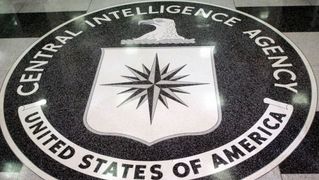
Guests
- Ben WiznerStaff Attorney in the ACLU’s National Security Project
A federal appeals court has dismissed a lawsuit about the CIA’s “extraordinary rendition” program under President Bush, which sent terrorism suspects abroad to be tortured. In a ruling issued Wednesday, the Ninth Circuit Court of Appeals upheld the Obama administration’s argument that the rendition program constitutes a state secret and its legality cannot be decided by courts. The lawsuit was brought against Boeing subsidiary Jeppesen DataPlan, Inc. [includes rush transcript]
Transcript
JUAN GONZALEZ: A federal appeals court has dismissed a lawsuit about the CIA’s “extraordinary rendition” program under President Bush, which sent terrorism suspects abroad to be tortured. In a ruling issued Wednesday, a sharply divided Ninth Circuit Court of Appeals upheld the Obama administration’s argument that the rendition program constitutes a state secret and its legality cannot be decided by courts.
The lawsuit was brought against Boeing subsidiary Jeppesen DataPlan, Inc. on behalf of five men who were kidnapped by the CIA, forcibly disappeared to US-run prisons overseas, and tortured. The men say that Jeppesen was complicit in their rendition to Morocco, Egypt and Afghanistan to be tortured. The lawsuit was filed by the American Civil Liberties Union nearly three-and-a-half years ago, and the Bush administration asserted the state secrets privilege to have the lawsuit thrown out.
AMY GOODMAN: As a senator and a candidate for president, Obama said he opposed the Bush administration’s use of the state secrets privilege. But once he became president, his Justice Department also argued the case should be dismissed on secrecy grounds. In his ruling on Wednesday, Judge Raymond Fisher said this was “a rare case” in which the government’s need to protect state secrets trumped the plaintiffs’ need to have any day in court.
Well, we’re joined now here in New York by the lawyer who argued the case before the appeals court. Ben Wizner is a staff attorney with the ACLU’s National Security Project.
Ben, welcome to Democracy Now! What happened? The case has been thrown out.
BEN WIZNER: Well, again, we need to look at the broader context in which this case is not being allowed to go forward. We are now almost two years into the Obama administration. Not a single victim of the Bush administration’s torture regime has yet had his day in court. And that’s because both the Bush administration and the Obama administration have thrown up one after another procedural roadblock to make sure that these claims won’t be heard and to make sure that no court will be able to say what happened here was illegal, what happened to these people was a crime.
In this case, as you said in the lead in, the particular device that the administration used was the state secrets privilege. But although this may be viewed in the United States as an arcane dispute about an evidentiary privilege, we need to look at how the rest of the world sees this. And the rest of the world wants to know whether there will be any possibility in US courts for torture victims to have redress. And if the answer is no, if this decision is allowed to stand, we’re going to see the foreign prosecutors, magistrates, the Garzóns, the Spataros of the world, who have been on this program, we’re going to see those people reinvigorating their investigations into the Bush administration’s torture regime, because America can’t clean up its own mess.
JUAN GONZALEZ: Well, it’s been your understanding that state secrets have been used in the past around a particular part of evidence in a court proceeding, not over an entire proceeding. Could you explain that?
BEN WIZNER: Well, again, in this case, the Bush administration and then the Obama administration did not invoke the state secrets privilege in order to prevent the disclosure of a particular document, or even a particular piece of information. They invoked the privilege before the lawsuit had even gotten off the ground and said that the entire subject matter of this lawsuit was off-limits for judicial review. Remember, we are required, as a signatory to the Convention Against Torture, to provide a remedy for people who are torture victims. This use of the state secrets privilege violates our treaty obligations, violates international law.
AMY GOODMAN: Let’s make this real, Ben. What happened to these men? Tell us about the five men you represented.
BEN WIZNER: These are individuals who were snatched off the street in various countries in Europe and the Middle East, were chained to the floor of airplanes, were flown off either to CIA-run black site secret prisons or to prisons run by Egypt and Morocco, were brutally tortured, were not charged or tried. The idea that this program is legal is so contradicted by the fact that the whole purpose of flying these people to other countries was to evade the law. Some ended up in Guantánamo, others in the intelligence prisons of foreign countries. And this Boeing subsidiary was a critical component in the CIA’s attempt to evade their legal responsibility, to hide what these flights were actually doing. And we know from an employee of this company that it was openly discussed within the company that these were the CIA’s torture flights and that they were making a handsome profit from these flights.
We brought this lawsuit on behalf of these five individuals to seek some measure of justice, some measure of compensation. And unfortunately, I’m afraid that if these five men are not permitted to have their claims heard, this may be the end of the line for torture victims trying to have their cases heard in US courts, because there are no secrets in this cases. These stories are incredibly well known, not just having been published in newspapers, but these men have been the subject of foreign legal proceedings. There’s no real secrecy, or this is not about secrecy. This is about shielding criminals from liability.
JUAN GONZALEZ: And the degree to which the Obama administration has reversed its early pronouncements in the first years of taking — in the first days of taking office?
BEN WIZNER: Well, I think that we are now seeing the consequences of President Obama’s mantra that we should look forward instead of looking backward. The problem is, this is not about the President; this is about the presidency. President Obama will not be president forever, and there is a dangerous possibility that his successor will return to these kinds of policies. It’s not enough for this administration to say, “We are not running secret prisons. We’re not torturing people.” Without a definitive ruling by a court that what happened was illegal and unacceptable, there is a real danger that we’ll see a repeat of these abuses.
AMY GOODMAN: Are you appealing the case to the Supreme Court?
BEN WIZNER: Absolutely. We are going to ask the Supreme Court to review this. And I hope that the Supreme Court will see this in an international context, that you see now many other countries, including our closest allies like the United Kingdom, are investigating their secondary role in the Bush administration’s torture regime. The US really stands alone in closing all doors to accountability and not conducting a serious criminal investigation and not allowing victims their day in court. And our hope is that the Supreme Court, the justices of which do spend time around the world meeting with other judges, will see that America is becoming an outlier and that it’s losing its reputation as a human rights defender.
AMY GOODMAN: Ben Wizner, we want to thank you for being with us, staff attorney in the ACLU’s National Security Project.












Media Options